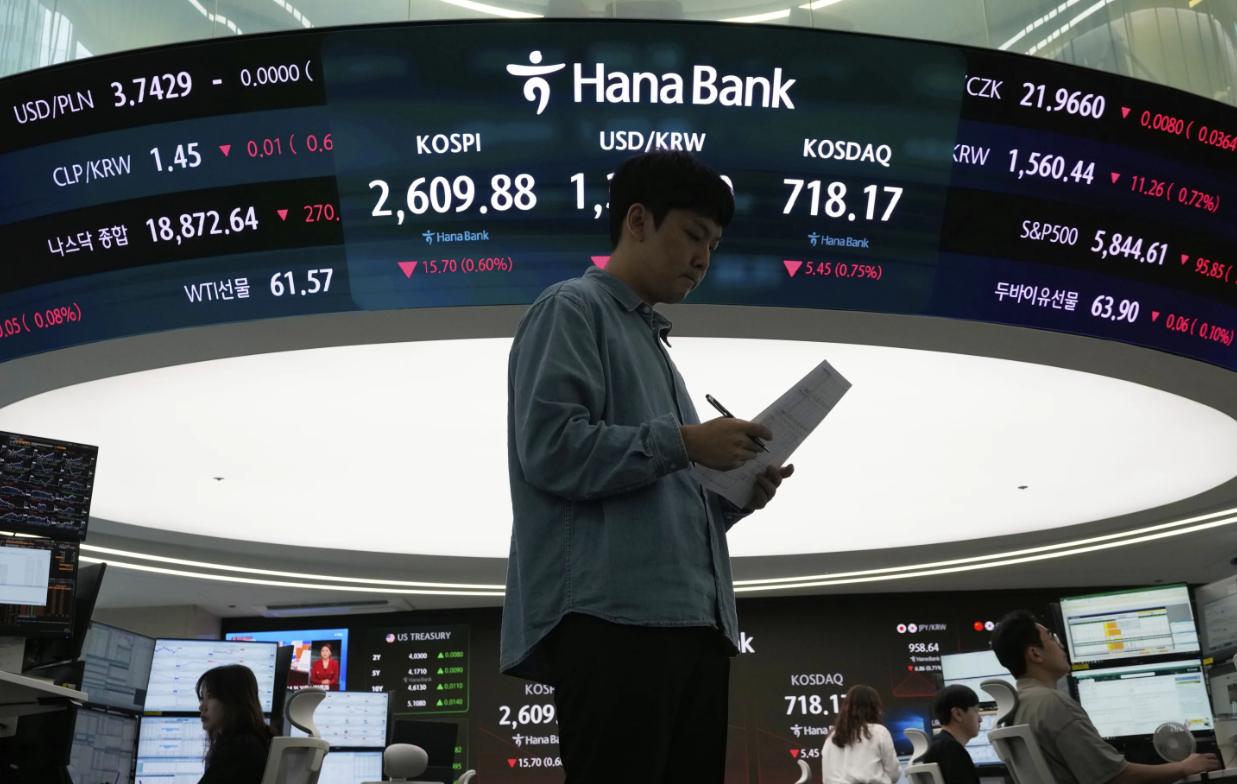
Recently, Jamie Dimon, CEO of JPMorgan Chase in the United States, stated at the Global Markets Conference held in Paris, France, that the U.S. economy is likely to enter a period of stagflation at this stage. Additionally, Wall Street stocks have recently surged due to pressures in the U.S. Treasury market and the country's debt issues, triggering a chain reaction that has led to declines in Asian stock markets. The reported content reveals that the U.S. debt level continues to rise, reflecting the government's inability to resolve the debt accumulated from borrowing to stimulate the market economy in a short time. This also indirectly highlights the severe fiscal deficit problem currently faced by the U.S. government. Higher debt levels necessitate more interest payments to address the issues arising from the debt, while the high interest rates resulting from this debt significantly reduce capitalists' investment appetite. This has raised concerns about the sustainability of the U.S. market and fiscal health, thereby suppressing social economic growth, undermining global investor confidence, and creating a ripple effect on Asian stock markets.
Beyond the broad impact of the U.S. debt stagflation crisis on the global economy mentioned above, the immediate causes of Wall Street's stock plunge can be further analyzed from the following perspectives:
The U.S. debt ceiling issue is one of the reasons behind this stock market crash. To support its domestic market economy, the U.S. government has undertaken a series of operations requiring borrowed funds. However, the continuous expansion of U.S. government debt has raised market concerns about its debt repayment capacity. Meanwhile, Wall Street's stock plunge also reflects the market's reaction to the U.S. economic downturn. The tariff policies implemented during the Trump administration severely affected domestic industries reliant on import and export goods. The price pressures from these tariffs have significantly hindered economic growth, further accelerating the stock market decline. Additionally, as economic globalization deepens, financial markets worldwide have become increasingly interconnected. The Wall Street crash has consequently impacted emerging markets like Asia, triggering a chain reaction of stock declines and exacerbating global financial market volatility.
The United States is a major trading partner for many Asian countries, and its economic health significantly influences the fate of businesses in trade-dependent Asian nations. The deepening U.S. debt crisis has reduced consumer investment confidence, which in turn affects U.S. demand for Asian goods. Declining demand subsequently impacts the revenue and profits of businesses in export-reliant countries. At the same time, stock market declines and U.S. debt issues may lead to a depreciation of the U.S. dollar, reducing the price competitiveness of Asian products in international markets. This could destabilize capital flows and increase risks in Asian markets.
In summary, the U.S. debt stagflation crisis has affected Wall Street and exerted profound impacts on the global economy. This crisis has also exposed the flaws in the U.S. government's previous tariff policies and fiscal management. Asian countries affected by U.S. debt issues should promptly implement responsive policies to address potential financial turbulence. Investors, meanwhile, should remain calm, rationally analyze market trends, and adjust their investment strategies accordingly. Furthermore, Asian nations reliant on imports and exports must closely monitor the trajectory of the U.S. economy and make timely adjustments to their trade policies to mitigate the impact of external shocks on their domestic economies.

Recently, Elon Musk has sought up to $134 billion in compensation from Open AI and Microsoft.
Recently, Elon Musk has sought up to $134 billion in compen…
Amidst the global wave of technological transformation, art…
In January 2026, the remarks by US Treasury Secretary Besse…
Less than three weeks into 2026, transatlantic trade relati…
On January 17, 2026, the Trump administration, under the pr…
When Musk set the goal of achieving a launch frequency of m…